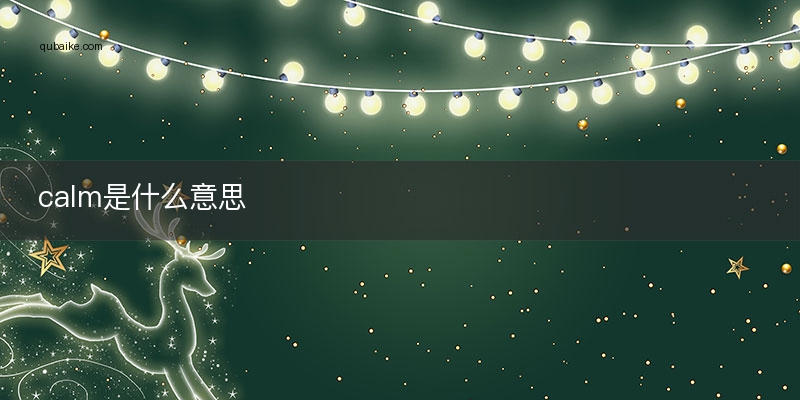
"he accepted their problems with composure and she with equanimity"
"spoke in a calm voice" "remained calm throughout the uproar" "he remained serene in the midst of turbulence" "a serene expression on her face" "she became more tranquil" "tranquil life in the country"
"calm seas"
"quiet the dragons of worry and fear"
"steady yourself"
"After the fight both men need to cool off." "It took a while after the baby was born for things to settle down again."
"The patient must be sedated before the operation"
误 He promised to take me boating on a calmed day.
正 He promised to take me boating on a calm day.
她给那个镇定的男孩一点牛奶。误 She gave the calm boy some milk.
正 She gave the calmed boy some milk.
析calm修饰天气、海洋、水等时作“平静的”“无风的”解,可直接用于名词前作定语; calm的过去分词calmed用作定语时主要修饰“人”,表示“镇定的”“镇静的”。